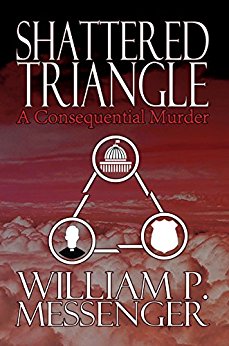All three were damaged long before the murder. Now however they have become even more conflicted. The priest, Giovanni already filled with doubts, now battles with the temptation of seeking revenge over forgiving the killer. The politician, Giuseppe, fears that something in his often corrupt past as a politician might have assured his wife and children’s deaths. Meanwhile, Tom, the detective, who was mentored by the infamous LA Police Chief Daryl Gates in the art of planting evidence, now must once again juggle ends versus means.
This set-up allows Messenger, who was a priest for 30 years in L.A., to bring the world of politics, religion and police work into the mix; teasing out the contradictions and similarities in all three. But what is most impressive about the book is how Messenger has mastered the difficult art of the flashback as well as managing a large group of characters and themes.
But Messenger doesn’t cheat the reader on suspense while ruminating on existential questions. Although at times his pace is off, he does get readers to turn the pages and he gives them a shocking payoff at the end. The surprise ending will haunt the reader, and make them hungry for an obviously-set sequel.
Every generation it seems critics say a writer has taken the mystery genre as far as it can go. In the late 1920s, it was Dashiell Hammett, who authenticated crime based on his Pinkerton experience by putting murder into the nihilistic world of the big city. Raymond Chandler built upon this, creating a sinister atmosphere of conspiracy and upper class sadism. Then Ross MacDonald contributed an academic take on the genre. Today, it is James Ellroy, with his scatological, borderline sane and hurtling pace that has been credited with taking the hardboiled mystery as far as it can go.
But Messenger has built upon this tradition, bringing his métier of religion and the crisis of conscience it can impose on even priests into a story that transcends the murder mystery.
~Ron Capshaw for IndieReader

